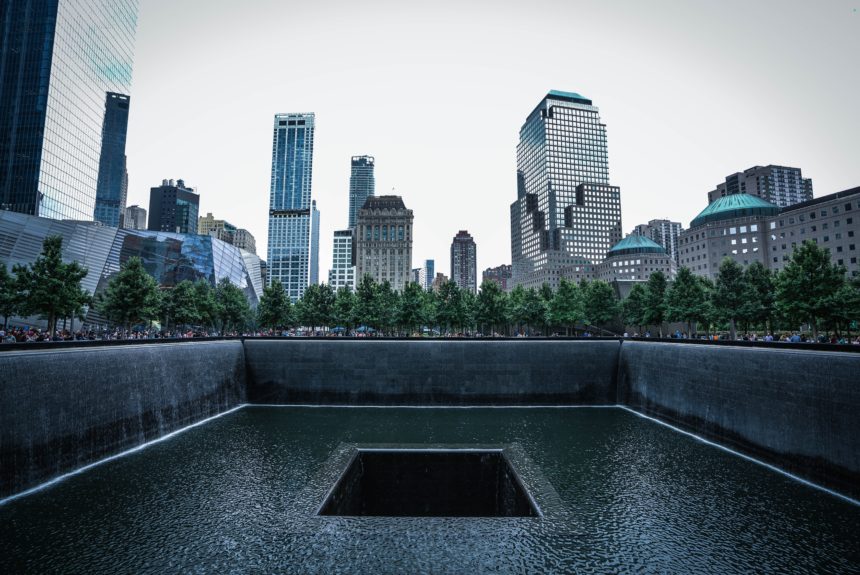Washington, D.C. was an eerie place on September 11. When I left work after making sure my colleagues were safely out, there was hardly a car on the road until I got near the billowing smoke coming from the Pentagon. From that point on, traffic was in complete gridlock and there were people walking everywhere trying to get home, even along the major highways. From that point on, it took me several hours to cover just a few miles.
As I got close to home, I picked up someone walking on the side of the road who turned out to be a neighbor down the street who I had never met before. That was a rare, small bright spot that day. Sadly, once I got home, I learned that a former colleague with whom I had worked in Senator Don Nickles office, Barbara Olson, had paid the ultimate price as her hijacked plane crashed into the Pentagon that day. From that point on, winning the war on terrorism was more than an American duty, it was personal.
As our sharply divided country marks 20 years since the September 11 attacks, there is one thing we ought to all be able to agree to: That must never happen again.
That is easier said than done, of course. One key reason is that it is impossible to guarantee complete security against terrorism. A government could spend all the money it has on internal security and some lone wolf could still manage to sneak through. But there is a better way.
Instead of treating all citizens as potential threats, let’s push back against terrorists by expanding economic freedom and opportunity everywhere, worldwide. This will encourage economic growth, create a stronger civil society, and help deliver a safer, cleaner planet.
Unfortunately, this is the opposite of what is happening now in Afghanistan, the country that was the wellspring of the 2001 attacks. Instead, Afghanistan is taking a huge step back, away from freedom. Following the American withdrawal, the authoritarian Taliban regime is taking over and is already responding to any threat with brutal force. It has targeted those who worked with Americans over the last two decades, and more violence is expected.
Such violence tends to spiral upward. Terrorism encourages the rise of authoritarian regimes. As rule of law is replaced by rule of force, the opportunity for government corruption proliferates. Authoritarian strongmen, focused on crushing terrorists, disregard essential freedoms such as private property rights, labor rights, free trade and financial opportunity.
The result can be destructive economic developments such as inflation, currency devaluations, and widespread stagnation. Environmental and climate policies, of course, take a back seat as the governments focus on maintaining and increasing their powers. It begins to sound much like the 20th Century, when nations behind the Iron Curtain were, as the L.A. Times put it in 1989, “a huge industrial dump.” At the same time that the economically free West was cleaning up the air, the water, and the ozone layer.
“Many of the indicators that measure a country’s overall economic freedom: property rights, investment freedom, trade freedom and strong institutions, are essential for environmental progress,” as a white paper from C3 Solutions put it earlier this year. When people enjoy political and economic freedom, they are able and likely to demand a clean environment. This is also an upward spiral, but in a positive way. Clean environments require a baseline of government-provided freedom. But each reinforces the other in a way that is unlikely to occur amidst a wave of violence and terrorism.
“Free, competitive markets without heavy-handed government distortions will drive investments in cleaner, more efficient technologies and more resilient infrastructure,” we found. “It will lead to a reduction of greenhouse gas emissions and improve the ability to adapt to a changing climate.” Authoritarian governments, focused on maintaining their own survival at the expense of their citizens, go in the other direction.
The world needs more economic freedom, not less. The United States is generating economic growth while reducing carbon emissions because of innovations in natural gas, energy efficiency, renewable energy and nuclear energy. More innovations are just around the corner. We have doubled the use of renewable electricity since 2008. It is now our fastest-growing energy source. We must export those and other clean energy technologies to the rest of the world for the sake of our energy security and environment. That means promoting freer trade and greater competition, not retreating into protectionist postures and policies.
As we remember September 11, 2001, let us never forget those who died that day and those that followed by serving to defend our freedoms and protect our homeland. Ultimately, economic freedom defined by a proper and limited role of government can best encourage people to prosper and flourish as humans. To the contrary, authoritarian and overreaching governments create the conditions for extremism and terrorism to metastasize, creating a downward spiral that goes against every freedom that we hold dear.
I pray that we hold fast to the former and fight fervently against the latter, both here at home and abroad, so that those who died on September 11 may be forever remembered. We must never forget, both by memorializing this day, and by working diligently to expand economic freedom and opportunity for all around the world. To such, there is no greater amen.
The views and opinions expressed are those of the author’s and do not necessarily reflect the official policy or position of C3.
